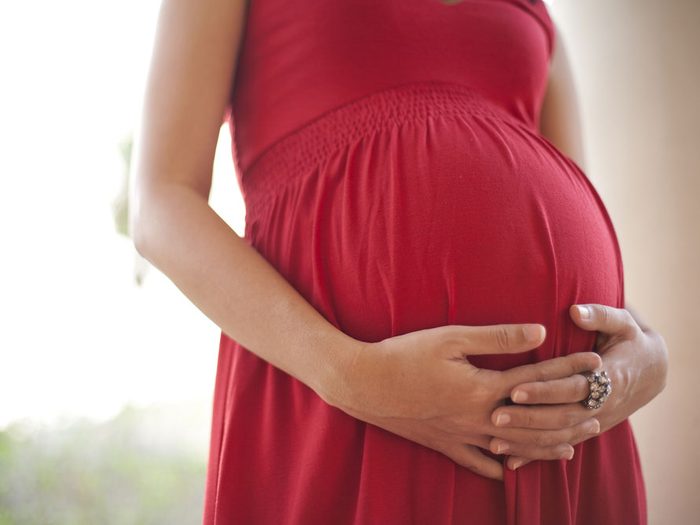
Thinking of starting a family? Try this:
If you’re thinking of starting a family, you should prep your body so you are at your healthiest not only to carry a baby, but to conceive in the first place. It’s good to improve your health four to six months ahead of time, rather than say, “Okay, I’m pregnant. Now I’m going to eat healthy,” says Dr. Victoria Maizes, author of Be Fruitful: The Essential Guide to Maximizing Fertility and Giving Birth to a Healthy Child, and executive director of the Arizona Center for Integrative Medicine.
Here’s what to eat and drink‚ and what to avoid for your best fertility.
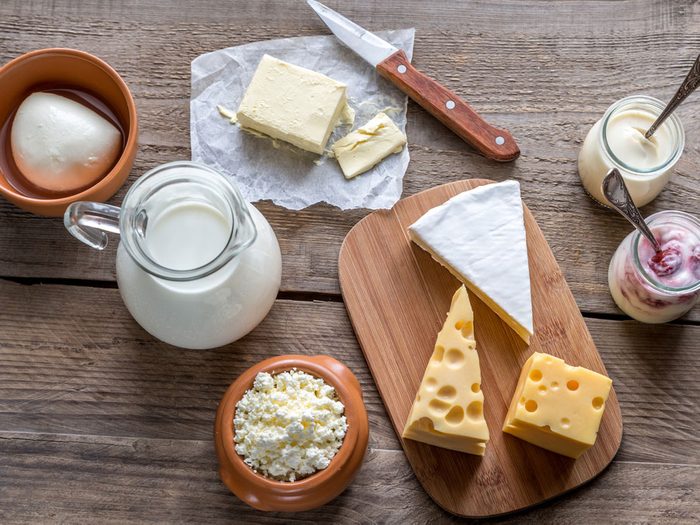
Get lots of full-fat dairy
Low-fat dairy products such as milk and yogurt are connected with infertility, but a high-fat diet lowers the risk of infertility, according to a 2007 Harvard School of Public Health/Brigham and Women’s Hospital Nurses’ Health Study surveying more than 18,000 nurses. (The World Health Organization defines infertility as failing to conceive after 12 months of unprotected intercourse.) To make low-fat dairy products, the dairy is spun at high speeds, separating the watery and fat components. “The watery components draw more male hormones and the fatty draw more female hormones,” says Maizes. “So with whole milk, there’s a normal balance of hormones. But with non-fat, it’s a more male-pattern hormonal picture, which negatively affects fertility.”
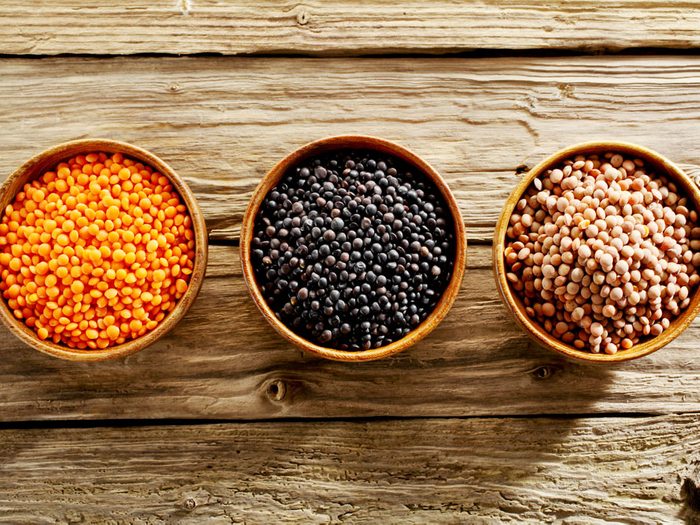
Get lots of iron-rich foods
According to Dr. Yaakov Bentov, a reproductive endocrinologist with the Toronto Centre for Advanced Reproductive Technology, up to 15 percent of women of reproductive age have low iron stores. “Iron deficiency affects the ability to get pregnant and to carry a pregnancy,” says Bentov. The same Harvard Nurses’ Health study noted that consuming iron from non-meat foods such as lentils and spinach or from supplements could lower your risk of infertility. However, specific dosages of supplements should be discussed with your physician.
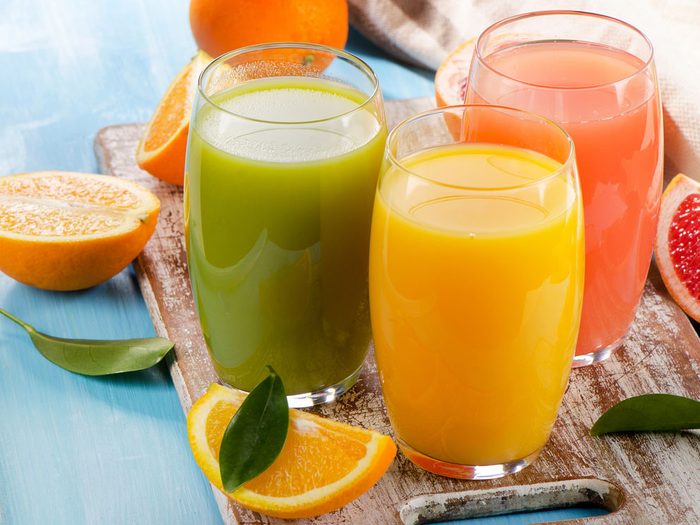
Get lots of citrus
All antioxidant-rich produce are good for fertility due to their anti-inflammatory properties. “Inflammation impairs fertility‚ but citrus may play a specific role. There’s evidence that the vitamin C in citrus helps enhance fertility,” says Maizes. “It has bio-flavanoids, and these can improve circulation and blood flow to the uterus, making us more fertile.” In a 2011 study from Boston University, three or more servings of citrus fruit a week helped lower a woman’s chance of developing uterine fibroids, which can impair fertility. (Tip: Guava, papaya and kiwi have more vitamin C per fruit than oranges and grapefruit.)
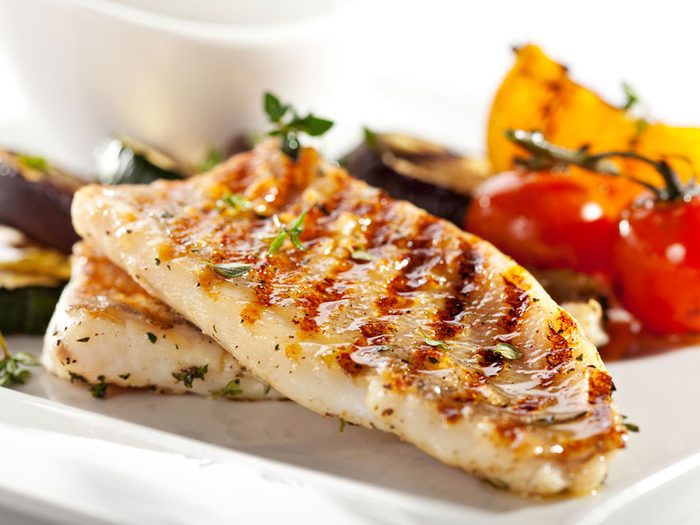
Get lots of fish
Pregnant women and those who are trying to conceive need to avoid high-mercury fish (e.g., swordfish, shark or king mackerel); however, oily fish (particularly sockeye salmon and lake whitefish) is a good choice since it contains the most vitamin D and omega-3s. A 2012 Austrian study found vitamin D helps increase progesterone and estrogen in women, which improves conception chances; in men, vitamin D is linked with healthy semen quality. As for omega-3 fatty acids, “They reduce inflammation,” says Maizes. Tuck into 12 ounces (375 g) of fish a week, and ask your doctor about vitamin D and omega-3 supplements.

Go easy on alcohol
When it comes to fertility, the concern over alcohol is quantity and frequency. As a 2011 Harvard Medical study found, men and women undergoing in-vitro fertilization who consumed more than four drinks a week lowered the woman’s chances of getting pregnant. “The evidence doesn’t mean you can’t have alcohol at all,” says Maizes. “The Nurses’ Study showed that one alcoholic drink a day doesn’t impair fertility, so small amounts are considered safe.”
Obviously, once you conceive, avoid alcohol.
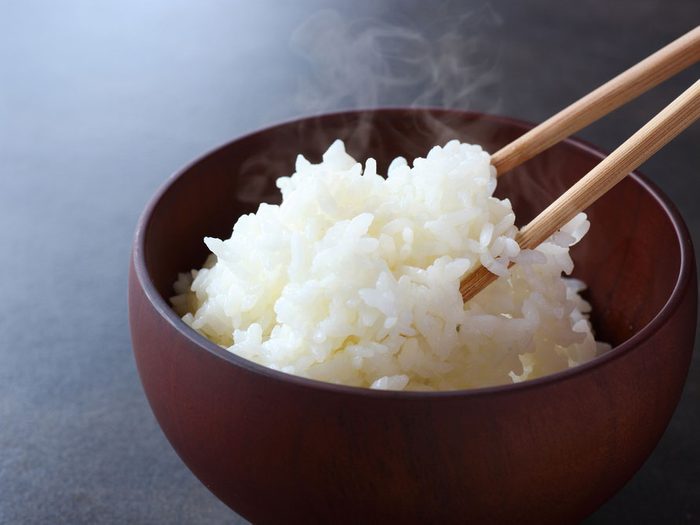
Go easy on high-glycemic-index carbs
Foods such as refined carbs, pop and white rice spike our blood sugar, and increase the risk of obesity and insulin resistance, which hinder fertility. A 2012 study from Boston University School of Public Health found women who drank lots of pop had lower chances of conceiving.
Not sure what’s high on the GI index? Avoid products that list sugar as their first ingredient.
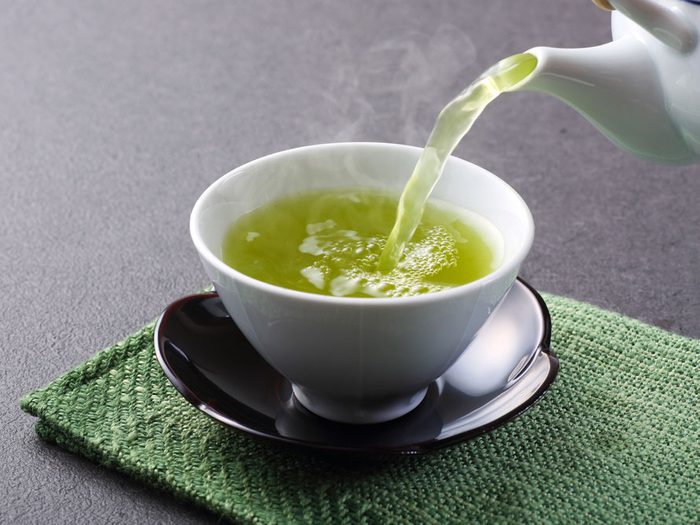
Go easy on green tea
“It removes folic acid from your body,” says Bentov. Folic acid is important in preventing neural tube defects; women who want to conceive should take a folic acid supplement.
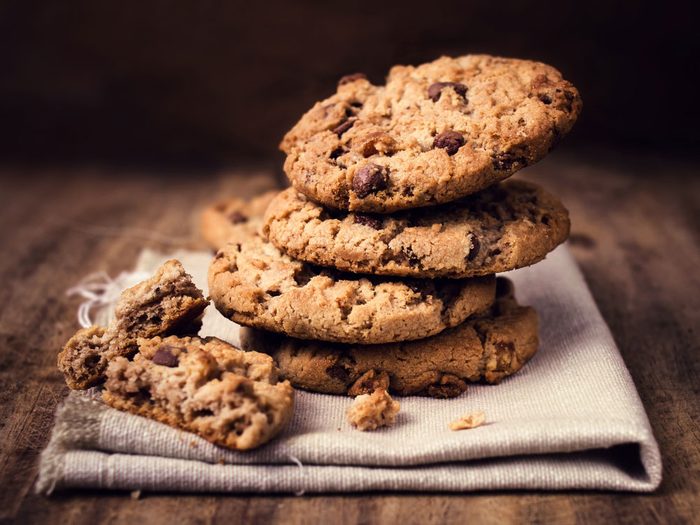
Go easy on trans fats
The Nurses’ Study concluded that participants with a two percent increase in calories from trans fats rather than monounsaturated fats had more than double the risk of ovulatory infertility. (See Good Fats, Bad Fats for more on trans fats.) These fats are found in many fried foods and packaged baked goods.

Hit a healthy weight
Eating for fertility relies largely on following a healthy diet, and that includes getting yourself to a healthy weight before pregnancy. The Society of Obstetricians and Gynaecologists of Canada suggests getting your body mass index (BMI) below 30 or, even better, between 20 and 25 – if you are underweight or overweight, you may risk pregnancy complications.
Related:
• How to predict when you’ll get pregnant
• 10 rules for a happier pregnancy
• 12 steps to your healthiest pregnancy
